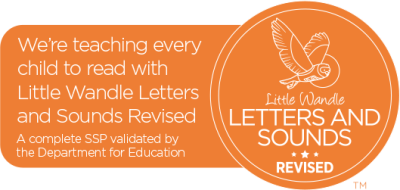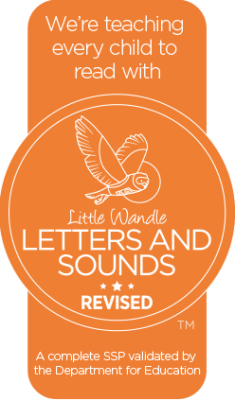

Miss Hudson
Phonics Lead
What is Phonics?
Phonics is a method of teaching children to read by linking sounds (phonemes) and the symbols that represent them (graphemes, or letter groups). We teach phonics daily for 30 minutes. Our phonic sessions are streamed across EYFS and KS1 depending on which phonic phase the children are working within. At Martlesham Primary Academy we use Little Wandle to plan and deliver our phonics sessions.
Phonics and Early Reading Policy
Why Phonics?
Reading is essential for all subject areas and improves life chances.
Positive attitudes to reading and choosing to read have academic, social and emotional benefits for children.
Phonics is the only route to decoding by learning to say the phonic sounds, by blending phonic sounds to read words and increasing the child’s fluency in reading sounds, words and books.
How at MPA?
Children read fully decodable books and must read books consistent with their phonic knowledge.
It is essential we do not use other strategies to work out words (including guessing words, deducing meaning from pictures, grammar, context clues or whole word recognition).
Children read books in a progressive sequence until they can decode unfamiliar words confidently.
What can parents/carers do?
Although your child will be taught to read at school, you can have a huge impact on their reading journey by continuing their practice at home.
There are two types of reading book your child will bring home:
- Reading practice book – this will be at the correct phonic stage for your child. They should be able to read this fluently and independently. If your child is reading it with little help, please don’t worry that it’s too easy, your child needs to develop fluency and confidence in reading. Children will take home books they have read at school to re-read at home to build fluency.
- Sharing book – your child will not be able to read this on their own. This book is for you both to read and enjoy together. They have chosen the book for you to enjoy together from the school library.
It is important for parents/carers to:
- Have a positive impact on their child’s reading;
- Model the importance of reading practice to develop fluency;
- Understand reading at home encourages a love of books, along with developing vocabulary and discussion;
- Listen to their child read their reading practice book. Remembering to give lots of praise and celebrate success, talk about the book together.
- Read their child’s sharing book with them, discuss the pictures, enjoy the story, predict what might happen next, use different voices for the characters, explore the facts in a non-fiction book.
- Give positive yet informative feedback in the home reading diary at least 3 times a week.
- The main thing is to make reading enjoyable and have fun!
Useful Documents
- Parents Workshop Slides
- Programme Overview – Reception and Year 1
- Glossary of Terms
- Capital Letter Formation
- Phase 2 Grapheme Information Sheet – Autumn 1
- Phase 2 Grapheme Information Sheet – Autumn 2
- Grapheme Mat – Phase 2 and 3
- Grow the Code Grapheme Mat – Phase 2, 3 and 5
Useful Videos
- Phase 2 Sounds – Reception – Autumn 1
- Phase 2 Sounds – Reception – Autumn 2
- Phase 3 Sounds – Reception – Spring 1
- How We Teach Blending
- Explanation of Tricky Words
- Quick Guide to Alien Words
